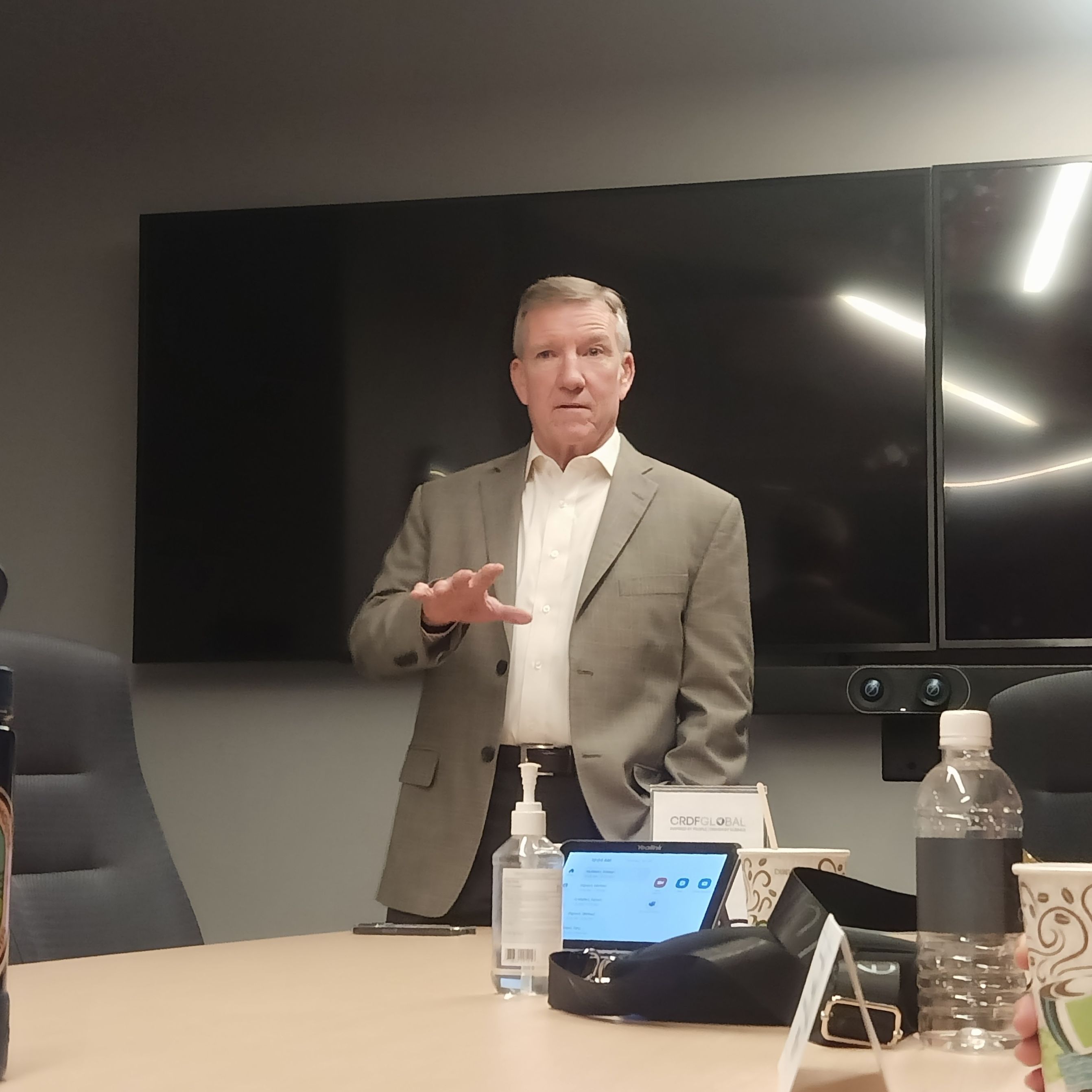West Philippine Sea tension 'won't lead to war' – ex-US Air Force general

VIRGINIA, United States – Despite the aggressive and coercive actions being done by China in the West Philippine Sea, it is unlikely that a full-blown war will erupt anytime soon in the disputed waters, according to a retired United States Air Force (USAF) general.
Retired USAF general Herbert “Hawk” Carlisle believes that Chinese President Xi Jinping is “more interested” in “unifying” Taiwan with China rather than waging a war against the Philippines.
“I don't think it will lead to war in the West Philippine Sea. I think their priority is Taiwan,” Carlisle told Filipino journalists participating in a reporting tour hosted by the US Embassy in Manila and non-profit organization Civilian Research and Development Foundation (CRDF) Global here.
The former commander of the US Pacific Air Forces said one of the reasons why China is interested in Taiwan is because of the kind of technology that exists in the self-ruled island.
Taiwan is one of the two largest manufacturers of chip or semiconductors in the world aside from South Korea. Carlisle emphasized that the modern economy is being powered by semiconductors, which serve as the backbone of electronic devices.
He said that if China takes control of such technology, it would be a “game changer” for the Asian superpower, which has been competing with the US in terms of military and economic supremacy.
“I think right now, they're [Chinese Communist Party] just so singularly focused on Taiwan and reuniting that with China. They've never given up that that's part of their country whereas the West Philippine Sea is something where they can control commerce and it would have some pretty significant effects,” Carlisle said.
“The West Philippine Sea gives them access, gives them control to the sea lanes of operation, of commerce, you know, all the things that the West Philippine Sea does. But what Taiwan gives them is saving face, for one thing. I mean, if you think about the technology that exists on Taiwan and the economic capacity that exists on Taiwan, one of the Asian dragons right?” Carlisle noted, as he referred to Taiwan with the most developed economies in Asia.
The retired general said that the US government is expected to aid both Taiwan and the Philippines in case China further escalates its aggression in the West Philippine Sea or Taiwan Strait.
The Philippines and US are bound by the Mutual Defense Treaty (MDT), a 1951 defense pact which requires both countries to help each other in case of an attack from a third-party nation.
But the proximity of China to Taiwan and the Philippines would be a challenge for the US.
“The challenge in the military side of it is it's an away game for us and it's a home game for them. If something happened in the Western Philippine Sea or the Straits of Taiwan or the East China Sea, we have to get there. They're there, so that's the part where we still have an advantage, but they have the advantage of location,” Carlisle said.
Filipinos in US concerned
In San Francisco, California, 59-year-old Manolo Aquino said he was pleased with how President Marcos was handling the tension in the West Philippine Sea.
Aquino, who worked as a seaman from a Japan-based firm in 2010, said the ships he worked on frequently passed through the South China Sea and Taiwan Strait, and they had been the subject of Chinese harassment in the past.
“The Chinese navy were contacting our ships, saying: ‘This is Chinese Navy. Vessel in this area, please report to us.’ We’re not responding because they are not the ones who control that part of the ocean. They don’t have the right to question our passage,” Aquino said.
“When I retired in 2017, I was so mad at [former president Rodrigo] Duterte because he was doing nothing about the Chinese harassment. I was angry. Why is China claiming that waters, those are part of the Philippines’ territory? We won at the international tribunal but he did not enforce it,” he claimed.
Duterte had developed warmer ties with China during his administration and turned ice cold with the United States.
“But now, I’m very happy. I did not like PBBM [President Bongbong Marcos] before. Now, I see him as a calm [leader]. I like how he manages the situation in the West Philippine Sea,” Aquino said.
In Hawaii, Eva Wishburn-Repollo, vice-chairperson of the Filipino Community Center in Honolulu, said she was “very concerned” everytime they learn from the news that Philippine and Chinese vessels had a confrontation in the West Philippine Sea.

“We’re very anxious about our lives here but I would say probably because of the military power of Hawaii, it’s very easy for us here to be a target for if anything happens in Asia. I think we can be taken by one bomb,” she said.
She also expressed concern for the Filipino commnity’s families in the Philippines.
“China is a superpower, America is a superpower. They play on our beautiful land as if our opinion matters. Just like all wars, it’s the small people who die,” she said.
WPS ‘not a top of mind’ concern for foreign investors
Meanwhile, the West Philippine Sea issue is not foremost in thoughts of foreign investors who are considering to expand their businesses in the Philippines.
“I would consider it as kind of a second order, one of the factors to consider, but it’s not top of the mind,” said Manny Maceda, CEO of business management consulting firm Bain & Company based in San Francisco.
Most international investors, according to him, are just looking at the West Philippine Sea issue as one of many factors they have to consider in case they make an investment.
“Investors have to evaluate upside and have to evaluate risks and most investors in the world, both corporate and private, have now spent some time scenario planning. What might happen? Does the West Philippine Sea issue rise up?” he said.
“We’re still validating. The investor community, is it a good market? Is it a good place for our supply chain, and is it an attractive place for talents? [The West Philippine Sea] is not a high, high, high issue. That’s just one of the different factors,” he added.